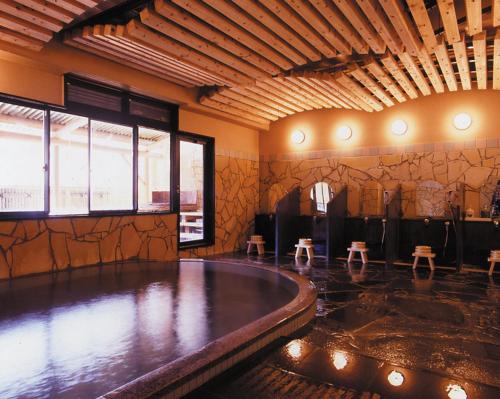Takatuka Atago Jizo Statue
menuMenu
A rare Jizo statue with syncretic Shinto-Buddhist elements, believed to grant blessings for childbirth, safe delivery, and recovery from illness.






Highlights
- Rare Jizo statue with syncretic Shinto-Buddhist elements
- Blessings for childbirth, safe delivery, and recovery from illness
- Over 2 million annual visitors
- Jizo statue donated by Ryoko Tani
- Magnificent scenery and a tranquil atmosphere
Basic Information
- Address
- 3740 Mabara, Amase-machi, Hita-shi, Oita Prefecture Search for tourist attractions in Oita
- Access
- Rail & Bus: Take the Hita Bus to the “Takatuka” bus stop. It's about a 30-minute bus ride from JR Kyushu Kuju Line Hita Station, and about a 10-minute ride from Hochu Nakagawa Station. Highway Bus: The Yufuin-go bus (Fukuoka⇔Yufuin) stops at the Amase Takatuka Bus Stop, near the Amase Takatuka Interchange. From there, it's about a 10-minute walk. Car: Located right off the Oita Expressway, Amase Takatuka Interchange. Show route
- Op.Hours
- 8:00 AM to 5:00 PM
- Cld.Days
- None
- Fee
- Free
- INFO
- There are several parking areas around the grounds. During busy times, we recommend parking in the lower parking lot and using the free shuttle bus.
Overview
Recommended nearby attractions
Ogimori Inari Shrine (Kitsunegashira-sama)

A power spot counted among the three great Inari shrines of Kyushu. A row of vermillion torii gates creates a sacred atmosphere.
Tazen Sho Kozaki's Rural Landscape

The beautiful rice terraces of Tazen Sho, boasting a 1200-year history, and the Daizono settlement, where remains of Kamakura-era houses are found, offer a landscape that feels like stepping back in time.
Jinkaku-ji Temple

Jinkaku-ji Temple, located near the summit at an elevation of 730 meters, offers breathtaking panoramic views of the city. In May, approximately 500 rhododendrons burst into bloom, creating a spectacular landscape.
Kōra Taisha Shrine

A shrine boasting breathtaking views overlooking the Chikugo Plain and a beautiful main hall with a thatched roof.
Chofuku-ji Temple

A Jodo Shinshu Buddhist temple located in Mameda-machi, a town with well-preserved historical streetscapes. The priest's sermons are known for their deeply moving words, receiving high praise from many worshippers.
Usa Jingu Shrine

One of Japan's three great Hachiman shrines, and the head shrine of Hachiman faith.
Komo Jinja Shrine

A historic shrine considered the ancestral shrine of Usa Jingū, featuring a beautiful triangular pond.
Yamaura Hayami Rice Terraces

The rice terraces spread across this mountain village create a scene of breathtaking beauty, like a painting come to life.
Oshitoishi Hill

A breathtaking viewpoint offering panoramic views of the majestic Aso landscape! Popular as a mysterious stone circle and a power spot.
Senkouji Temple

Senkouji Temple offers breathtaking views of the Onomichi waterway and cityscape, along with its historically significant temple architecture. Highlights include the vermillion-lacquered main hall, 'Aka-dō,' and the bell tower.
Nearby Hotels
Seoto / Yuoto no Yado Ukiha

Miharashinoyado Fronden

Ukiha

Ryokan Hitaya

Ryokan Ukiha Bekkan Shinshiyo

Sansou Tensui Hotel

